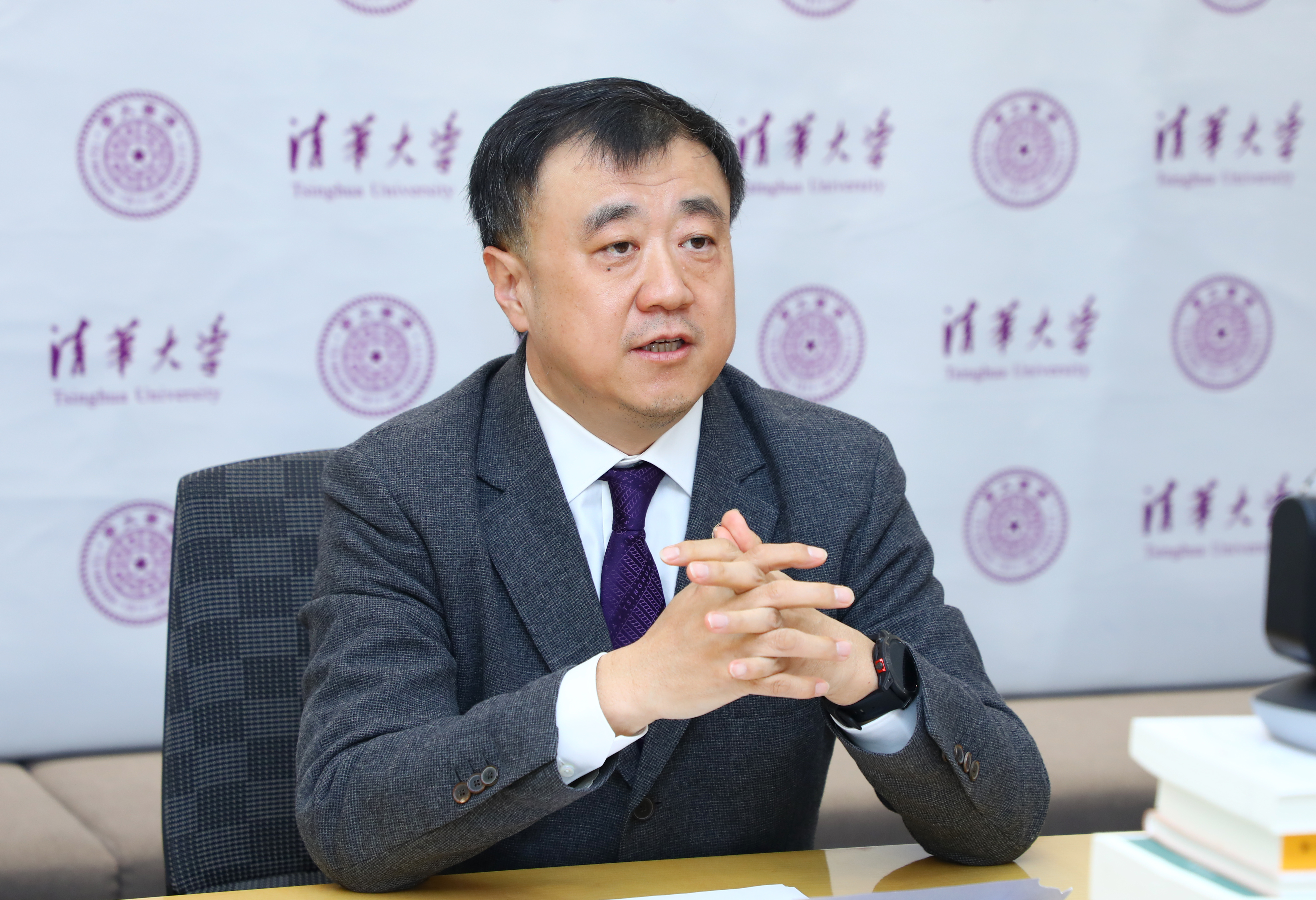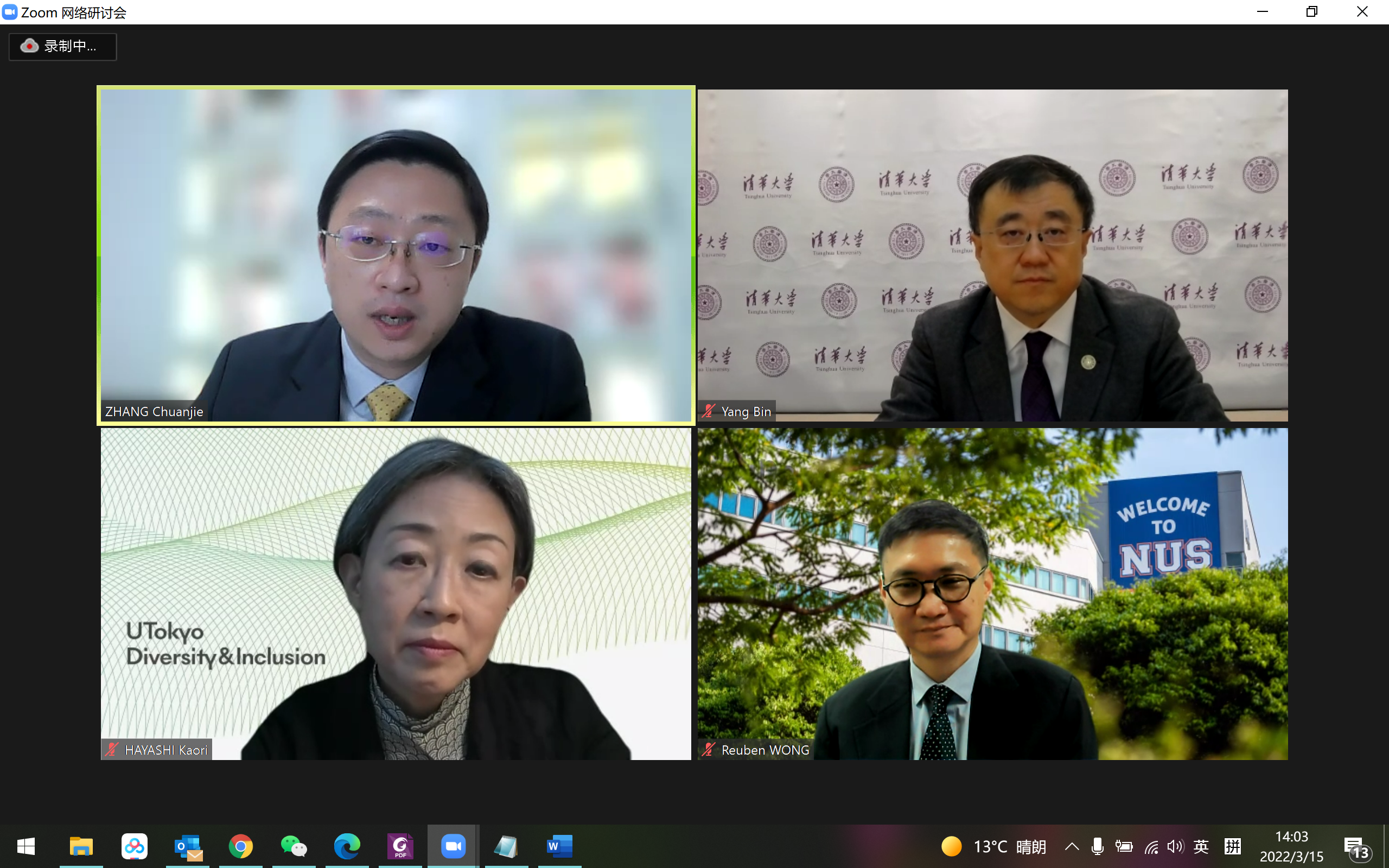On March 15th, the AUA Presidents Forum 2022 held its first session under the theme “University Internationalization During and After COVID-19”. It brought to the forefront critical challenges the pandemic poses to higher education and innovative strategies to move forward.Prof. Yang Bin, Provost and Vice President of Tsinghua University, attended the session with Prof. Kaori Hayashi, Executive Vice President of the University of Tokyo, and Dr. Reuben Wong, Associate Vice President of the National University of Singapore. The panelists shared their universities’ practices and experiences in navigating the COVID-19 crisis, including the shift to hybrid and online classes, and the importance of unwavering commitment to internationalization during and after the pandemic. The session was moderated by Dr. Zhang Chuanjie, Secretary of Asian Universities Alliance.

In his remarks, Prof. Yang Bin first congratulated AUA for its five years of contribution in creating an effective platform of collaboration for its member universities. He pointed out that despite the challenges, the pandemic has also brought a transformation in digital education for Tsinghua University. Now, most Tsinghua courses can be converted to hybrid teaching as needed. Many international students who are unable to come to campus and the hundreds of volunteers serving the Winter Olympics are taking the hybrid classes, and learning alongside their classmates who are physically in the classroom. The widespread use of digital teaching and learning has become a natural phenomenon in Tsinghua University.
Yang pointed out that the pandemic has highlighted the importance and urgency of joint efforts in addressing global challenges. To this end, Tsinghua will promote international exchange and cooperation in four particular areas: public health, climate change, online education and artificial intelligence governance. Yang highlighted the first two global conferences on MOOC and online education, which were hosted by Tsinghua University in 2020 and 2021. These conferences served to establish closer ties between universities and online education platforms and promoted the construction, development and sharing of online education resources around the world. Yang also suggested the possibility of co-developing certificate programs and establishing hybrid degree programs. “Tsinghua University will further exploit digital technology to speed up knowledge transfer within campus, between universities, and among various social sectors and industry,” Yang said.

Kaori Hayashi introduced the University of Tokyo’s various initiatives, including the “Global Unit Courses” program and the online “Short Term Education Programs”. For continued academic exchange, the University of Tokyo also implemented the “Global Fellow Designation Program,” which invited scholars from overseas to participate remotely in their research and education practices.
Reuben Wong shared NUS’s experience in hosting the first online “Young Asian Leaders Initiative”. “This was a fantastic way of connecting youth across borders,” according to Wong. The National University of Singapore has also encouraged students and faculty to produce online content, such as videos and blogs to document their learning. Wong also emphasized the importance of fostering global citizens through interdisciplinarity.
The panelists addressed questions from the audience on topics including the quality of online courses and career education during the pandemic. Bringing diverse viewpoints to the session, panelists engaged in a lively discussion and exchanged best practices among member universities. Their valuable contributions embodied the resilience and shared commitment to internationalization at the universities.
Writers: Zhang Xi, Zoon Ahmed Khan
Editor: Li Han

